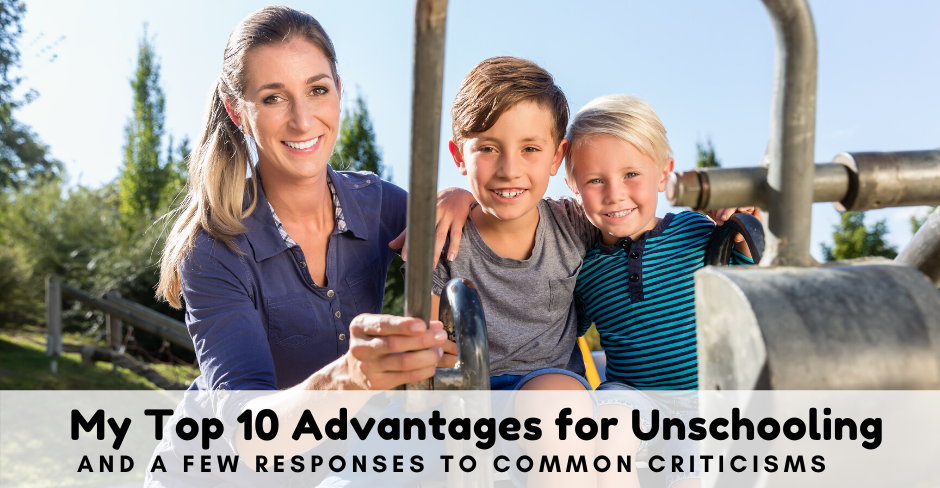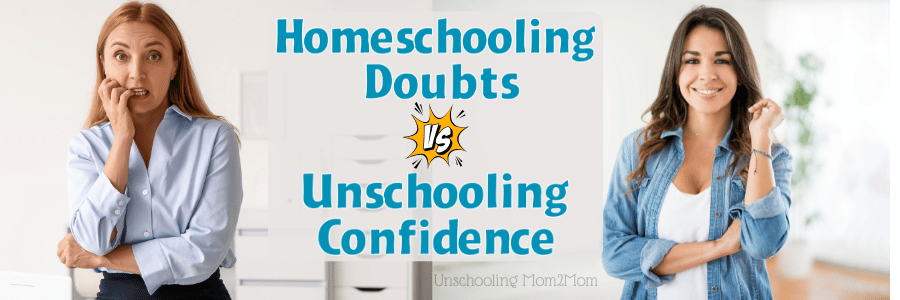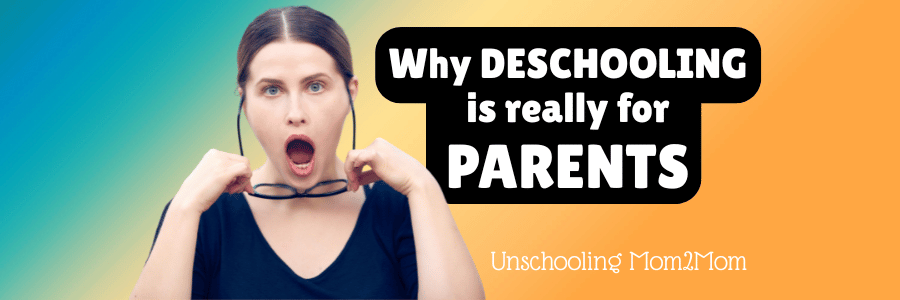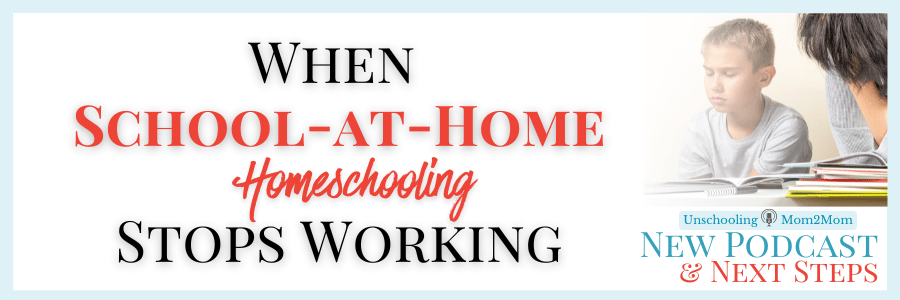My Top 10 Advantages (and some Criticisms) About Unschooling
April 29, 2020
Deb Lewis shares a few advantages she noticed unschooling her son over the years.
She provides some insight into some of the criticisms that occasionally surface about unschooling too.
There are advantages, profound and beautiful, silly and fun, to letting your child skip school, every day, for thirteen years. As you'll see, some of the advantages were my child's and some were mine as the parent. I won’t be able to name them all, but I can tell you my top ten favorites.
10 Advantages to Unschooling
1. You will have the pleasure of really getting to know your child.
You'll have the wild delight of being able to see and understand what lights her up. And in addition, you’ll get to be the one to help fuel those fires. From one day to the next you’ll know what inspires and excites her, when to help her get more and when she’s had her fill.
2. You’ll learn a lot about how your child learns.
You’ll learn a lot about learning in general, new stuff you never thought of before. You will be surprised and amazed daily.
3. You will be happier when your child is happy and learning.
They'll be able to learn, free from the pressure and burden of the busy work of school.
4. You will never fight with your child over homework.
Not one shout. Not one tear.
5. Your child will have the gift of learning in peace, safety and comfort.
He’ll have time to linger and explore as much as he likes. He’ll have the freedom to move on quickly if an initial interest doesn’t take off. He’ll have the flexibility to pursue many interests at once.
6. Your child will be safe from the harm school can do.
They'll avoid being made to feel stupid or slow, or, just as harmful, from being convinced she’s “gifted.” She’ll avoid being stifled by the death march pace of a droning teacher. In unschooling, there’s no such thing as ahead or behind. There’s only learning, and all of it is meaningful.
7. If your child is an introvert, or a little quirky, unschooling will remove the pressure to conform.
Unschooling will let him be at ease with himself, away from the crowd and noise of school. He won't have to overcome the suffocating discomfort of compulsory socialization, and can instead choose for himself when and with whom he keeps company. Emotional well being contributes to a richer learning experience.
8. If your child is very physically active, unschooling will help you meet their needs.
No maddening time in a desk. No getting in trouble for being wiggly.
9. Unschooling will give your kids the chance to have friends of many different ages.
They'll have adult friends and not just adults who want them to recite facts or pass tests, not patronizing grownups, but adults who do interesting work and enjoy talking about it and who don’t feel any pressure to be teacherly.
10. Unschooling will allow your child the time to become an expert.
And this will happen several times over, at Legos or Minecraft, ballet or karate, dinosaurs or spiders. In 1974 John Holt wrote Escape from Childhood, The Needs and Rights of Children. It’s a radical book, as almost all social reform books of the seventies were. It still looks radical to parents and educators today. But his points, in that book, that children are overly controlled, and grossly underestimated, are just as valid today. If you’re bravely wading into the mysterious pool of unschooling and haven’t read that book, it might get you thinking about children and what they can do and what they ought to be able to try, with your experienced help and guidance.
Common Criticisms of Unschooling
Any time you give children choices that make other parents uncomfortable, anytime you do things very differently, you will face criticism. If you’re lucky it will be mild and easy to overlook. If it’s not, the most helpful thing I know in dealing with criticism is to stay informed about what the critics are saying and to be able to answer criticism with reason and confidence.
Children Can't Be Trusted
Some people will say children can’t be trusted to make choices, or maybe they can make very inconsequential choices, like what color shirt to wear today, but certainly not choices about what they’d like to do with their time. But adult life is all about making choices, every day, choices that get you closer to your goals. The best way to learn to make good choices is have lots of experience making choices, experience with mistakes and learning how to bounce back, having many chances to test how well you can predict outcomes.
You're Cheating the World Out of Specialists
Some people will say that you could be irresponsibly cheating the future of much needed scientists, and mathematicians, by letting a potentially talented child play in mud, and paint all day, instead of studying. But this presupposes that any random child might have a world changing talent for science or math, when in reality most children won’t. And if you happen to have a child with a talent and interest in mathematics or science, the place for specializing those skills and talents is not fifth grade, or even middle school. There will be time for your future Nobel prize winner to get the education and training she needs when she wants it, when her interest drives her there. That might be at age fifteen, or age thirty-five.
You're Not QUALIFIED!
Some people will say you may not have the skills to help your child learn everything he’ll need in the future. They’re right! The world changes fast. It might be that the job your child will be doing in twenty-five years hasn’t even been imagined yet. If it doesn’t exist, the skills for it are as yet unknown to parents *and* to teachers. But a child with access to the world and lots of interesting people and the time to explore, has a much better chance at learning emerging skills and technology than a child in school plodding through a curriculum with outdated science books.
In Escape from Childhood , Holt writes: “Young people have to be trained, in part by what we tell them, mostly by how we treat them, to think of themselves as irresponsible, incompetent, ignorant, foolish, no-account.”











